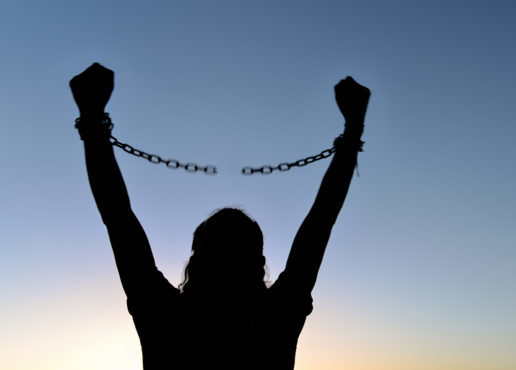Many of us lock ourselves into huge long-term commitments without knowing whether our future circumstances will allow us to honor these obligations. We may barely be able to qualify for the payments on a large new home, but we want it so badly that we buy it anyway, in hopes that the payment will feel more affordable as our income goes up. Then the unthinkable happens: our income actually goes down, or stops completely, and we lose everything.
Quote About Interest by Reuben Clark Jr.
Consider the following observation by J. Reuben Clark, Jr: “Interest never sleeps nor sickens nor dies; it never goes to the hospital; it works on Sundays and holidays; it never takes a vacation; it never visits nor travels; it takes no pleasure; …it has no love, no sympathy; it is as hard and soulless as a granite cliff. Once in debt, interest is your companion every minute of the day and night; you cannot shun it or slip away from it; you cannot dismiss it; it yields neither to entreaties, demands, or orders; and whenever you get in its way or cross its course or fail to meet its demands, it crushes you.”[i]
Why Do People Go Into Debt?
Maybe part of the reason so many people readily incur excessive amounts of debt is that the penalty today for failing to meet our obligations is not very harsh. If we can no longer make our payments or just do not feel like making them anymore, we can simply walk away with a mere slap on the hand in the form of bad credit for a few years, and then begin the whole cycle all over again.
What Happened if You Couldn’t Pay Your Debt in Colonial Times?
In Colonial America, people were much more hesitant to go into debt because declaring bankruptcy often resulted in literally becoming a slave to creditors, being imprisoned for life, having an ear cut off, or having a thumb branded with a “T” for “Thief.” Of course I am not recommending a return to such barbaric practices. However, I do believe that we should treat debt with more seriousness than we do now.
How Debt Prevents Us from Following Our Dreams
Debt’s power to diminish our liberty and happiness is demonstrated by the choices of a very successful businessman who a friend of mine was recently telling me about. He lives a very extravagant lifestyle but hates his job and dreams of becoming a high school basketball coach. When my friend suggested that he go for it, he said he could never make the switch because his monthly debt obligations are way too high, and he could never downsize because of the lifestyle his wife and children have come to expect. He has voluntarily locked himself out of opportunities to do what he loves doing most and has resigned to working very long, grueling hours at a job he hates for the rest of his career.
The Benefits of Living Debt-Free
Conversely, another successful businessman I know has paid cash for almost everything he has bought all along the way. Although he may have been able to live an even nicer lifestyle if he had borrowed more, he lives very well. He has built a large, beautiful custom home with a very small mortgage payment. He drives high-end luxury vehicles, owns two fully furnished vacation properties, an RV, a boat, several four-wheelers, and travels a lot. Over the past couple of years the business he owns has taken a nose dive, like many other businesses, but he is one of the few I know in his situation who has been able to maintain all of his possessions because he does not owe anything to anyone, other than the small mortgage on his home. Of course he has cut back on many things he used to spend money on, but he is in a remarkably secure and flexible position compared to most of the people I know who enjoy a similar standard of living.
Although paying cash for everything requires sacrifice, humility, and patience, it is the safest, happiest way to pay for things because then we never risk buying something we cannot afford. Not owing anything to anyone is a great feeling.
What Little House on the Prairie Can Teach Us About Debt
I have been reading a bit of Little House on the Prairie to our children every night for the past couple of weeks, and one chapter really struck me the other night. In this part of the story, Pa was building a cabin out on the unsettled Kansas prairie without any nails because it was a very long trip to the nearest town. While chopping down trees for the cabin, he met another settler who lived several miles away. This man insisted that Pa borrow some nails from him to build a roof for the cabin. When Ma heard about it, she complained, “But I don’t like to be beholden, not even to the best of neighbors.” Pa responded, “Nor I. I’ve never been beholden to any man yet, and I never will be. But neighborliness is another matter, and I’ll pay him back every nail as soon as I can make the trip to Independence.”[ii]
I thought to myself, “Wow, Ma would rather have Pa build a roof without nails than owe anyone anything!” I was also impressed with Pa’s resolve to repay every single nail as soon as possible. What would our society be like today if everyone had the same attitude as the Ingalls family did then?
The Joy of Living Within Your Means
No matter how poor our spending decisions may have been in the past, we all have the power to change. We may not be able to regain our freedom from bondage overnight, but if we work hard and consistently spend less than we earn, we will inevitably emerge victorious over the chains of debt. When that glorious day arrives, we will realize that the reward is well worth the effort.
What we do with the money we receive drives everything else in our lives. Living by a prudent cash flow hierarchy and then living joyfully within whatever is left over is a vital step in our quest for financial security. Our future is filled with hope if we can truly learn to always “channel the flow to make things grow.”
[i] J. Reuben Clark, Jr., Conference Report (April 1938), 103.
[ii] Laura Ingalls Wilder, Little House on the Prairie (New York: HarperCollins Publishers, 1963), 124-125.
Adam Dawson, CFP® is a Principal at Capstone Capital and the author of Timeless Principles of Financial Security.
- Should You Invest At the Peak of the Stock Market? - August 5, 2021
- Our Thoughts on Bitcoin: Capstone Capital Wealth Advisors - May 12, 2021
- Are You Over-Insured? - September 12, 2017





